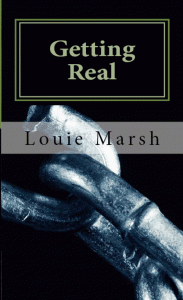Disciple Up # 298
Dishonest Christian Publishers
By Louie Marsh
Links used during this Podcast
https://archive.thinkprogress.org/meet-donald-trumps-new-evangelical-advisory-board-6a5bfc5460d7/
Excerpts from CT article:
The Problem with Christian Book Endorsements
Publishers and authors have played along by pushing celebrity blurbs—but it’s time to rewrite the rules of promotion.
KATELYN BEAT
As an editor at a Christian publisher, I review multiple book proposals each week. Authors pitching a new project will share a table of contents, a sample of their writing, their bio, statistics about their platform, and—always—a list of confirmed or potential endorsers.
It’s a strange detail, since most trade nonfiction books aren’t already written when the author goes under contract with a publisher. This means that endorsers have agreed to endorse something that doesn’t exist.
Authors and agents are simply playing the rules that publishers set, and in Christian publishing—as with all book publishing—it’s about who you know.
Many authors hate seeking endorsements; it feels self-promotional and vulnerable. But endorsements are simply part of the deal, going back to at least 1856, when Walt Whitman had Ralph Waldo Emerson’s letter praising Leaves of Grass published in the New-York Tribune prior to the book’s second edition.
It’s a risky thing to do—especially when an endorser hasn’t read the book.
Last week, The Gospel Coalition published, then unpublished, an excerpt from the forthcoming book Beautiful Union: How God’s Vision for Sex Points Us to the Good, Unlocks the True, and (Sort of) Explains Everything. Readers criticized the author, Joshua Ryan Butler, saying he misconstrued the marriage metaphor in Ephesians 5, making it pornographic, male-centric, and ripe for abuse.
As criticisms mounted, ministry leader Dennae Pierre and pastor Rich Villodas publicly retracted their book endorsements. Pierre said she had written hers “based on training Josh had done for local pastors” and had done a “quick skim” of the book. Villodas said a mutual friend had invited him to endorse the book: “I agreed to the favor, but in poor judgment, read only 25-30% of it.”
It was good for Pierre and Villodas to admit they hadn’t fully read a book that will feature their names, at least on the first printing. Their retractions are a wake-up call for book buyers: Endorsements aren’t always about quality of writing or theological soundness. In practice, they aren’t even always an honest assessment of someone else’s work.
Rather, in an age fixated on platform, endorsements are about establishing the market appeal of an author based on their connections to famous people. As such, endorsements are usually driven by celebrity, mutual back-scratching, and power consolidated through loose social, professional, and ministry networks. There’s a reason that endorsements come through the marketing team (not editorial): Endorsements are marketing tools, not editorial reviews.
Of course, many endorsers offer blurbs for good reasons. They want to support friends and acquaintances. In a market where sales often boil down to platform, many famous people want to share the spotlight, or shine it on emerging voices. Plus, a Christian culture of niceness—and the blurring of lines between friendship and commerce—make it hard to say no to endorsement requests. (Note that Villodas said he agreed to a “favor.”) After all, whoever blurbs sparingly will also be blurbed sparingly, for God loves a cheerful blurber.
I consider it a red flag that some faith-based publishers will write an endorsement for a celebrity who doesn’t have time to write it themselves. Let me repeat that: A publishing team member, coveting a celebrity’s name on a forthcoming title, will contact them or their team and say, “We know you’re very busy because you’re very important and clearly called to do big things for God, so you probably won’t have time to read this book. But we would be so honored to have your support. Might you say something like this? [fill in endorsement].” Then the celebrity or their assistant signs off on the wording or tweaks it before it appears on the book.
Imagine if the blurb appeared as it was written:
Timely and compelling message! —Famous Pastor —Marketing Intern
It doesn’t have the same ring, but at least it’s honest.
Likewise, it’s mostly up to blurbers to be honest about their blurbs. Personally, I would love to see more blurbs that include praise and critique; one needn’t agree with every detail in a book to commend it as worth reading.
It would be unorthodox, from an industry view, for faith-based publishers to drop endorsements on principle of resisting celebrity. But it could also honor the central task to which Christian publishers are called: to edify Christian readers and deepen the faith of everyday believers, not to serve as an avenue for aspiring leaders to boost each other’s careers.
Christian publishers have been implicated in scandals around ghostwriting, plagiarism, and extending the platforms of unhealthy and abusive leaders. If they are also asking endorsers to essentially lie to book buyers, we have deep problems to attend to.
Katelyn Beaty is editorial director of Brazos Press, a division of Baker Publishing Group. She is the author of Celebrities for Jesus: How Personas, Platforms, and Profits Are Hurting the Church.
ANOTHER ARTICLE:
At The Gospel Coalition, Joe Carter summarized who said what:
On Tuesday, several evangelical leaders drew criticism for promoting the newest book of Paula White, a prosperity gospel preacher who has repeatedly been accused of teaching heretical doctrines. Franklin Graham, president of Samaritan’s Purse and the Billy Graham Evangelistic Association, said “you might want to check it out.” Robert Jeffress, pastor of First Baptist Dallas, said to “give it to anyone looking for hope!” Jack Graham, pastor of Prestonwood Baptist Church in Plano, Texas, declared, “It is powerful. I highly recommend it!” And Jerry Falwell Jr., president of Liberty University, added, “Paula’s life is an encouragement to so many and I’m sure this book will encourage you.” (It’s unclear whether these men have actually read the book or if they support White’s teachings.)
Since then, several of those endorsers have removed their original tweets, such as Franklin Graham’s.
But here’s one annoying secret about book endorsements: Sometimes the endorser has not even read the book being endorsed.
This apparently open “secret” leaked some time ago, thanks in part to author Randy Alcorn. In this article, he wrote:
I’m often asked to endorse an entire book based on one chapter, and several times I’ve been sent an-already written endorsement and asked if I would agree to have my name attached to it! Personally, I don’t think this is ethical. I’ve also been told by several Christian leaders they would be glad to endorse my book, and they were having a staff person read it and give me the endorsement under the leader’s name. I’ve had to explain I don’t believe in ghost-written endorsements, so no need to send me one because I couldn’t use it. That’s an awkward situation for everybody.
This is one of several objections Alcorn shared about “acceptable” practices in Christian publishing. He also critiques ghostwriting and other practices, such as paid celebrity endorsements for nonprofit groups. Alcorn calls these “the scandal of evangelical dishonesty.”1
Earlier this week, I shared some of this info (along with a little speculation about one old, and since removed, celebrity endorsement of another book). Since then, blogger Julie Roys confirmed that, indeed, one endorser had not actually read Paula White-Cain’s book:
. . . When pressed about whether he’s certain that there’s nothing in White’s book that supports prosperity gospel, Jeffress said: “My schedule is so busy, I can’t read every book word for word. But what I did see was really her autobiographical account of her past and how God redeemed her life.”
. . . Yet when I asked Jeffress if he’s sure that White’s theology is orthodox, and that she is not a proponent of the prosperity gospel, Jeffress said, “All I can say is she claims not to be.” I asked Jeffress whether he’s investigated what White teaches for himself and he answered, “No, no . . . I’m too busy in my own ministry to launch an investigation.”
Sure, perhaps Christian leaders really are very busy. Perhaps they haven’t time to investigate another Christian leader, who has been reputably charged with promoting heresy. But in that case, perhaps you should—at minimum!—avoid endorsing the person’s book? Especially if you haven’t even read it? And even if you and the professing-Christian author share the same political fandoms?
Please Get In Touch!
Email – louie@discipleup.org

Check out the Disciple Up Facebook page:
My books –









